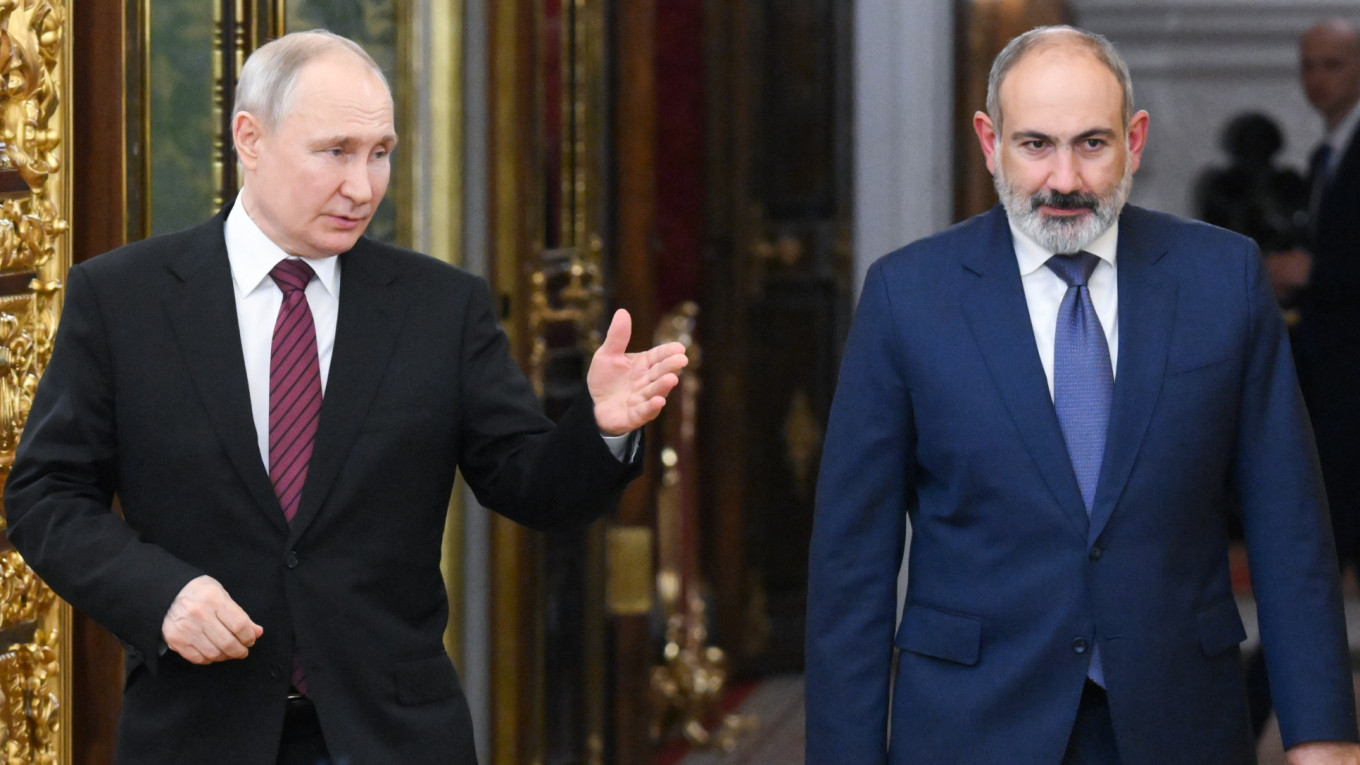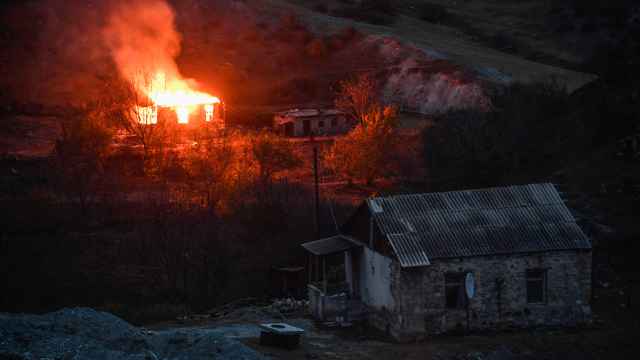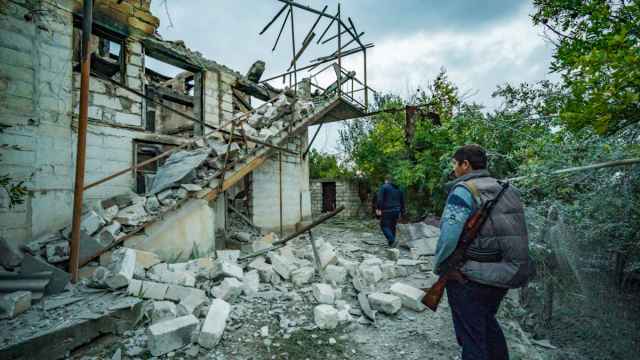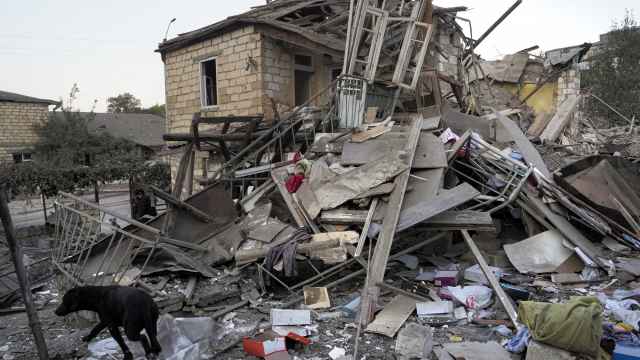Arch foes Armenia and Azerbaijan are advancing toward normalizing ties following mutual recognition of territorial integrity, the two countries' leaders said Thursday as they held talks in Moscow.
Armenian Prime Minister Nikol Pashinyan and Azerbaijani President Ilham Aliyev met separately with Russian President Vladimir Putin before the three held joint negotiations late on Thursday.
The talks were held following recent deadly border clashes between the two Caucasus neighbors, which have been locked in a decades-long conflict for control of Azerbaijan's predominantly Armenian-populated region of Nagorno-Karabakh.
"There is a possibility of coming to a peace agreement, considering that Armenia has formally recognized Karabakh as part of Azerbaijan," Aliyev said ahead of talks.
"Azerbaijan has no territorial claims to Armenia," he added.
Pashinyan said the two countries were "making good progress in normalizing relationships, based on mutual recognition of territorial integrity."
He said Yerevan was ready "to unblock all the transport links in the region that pass through Armenian territory."
Putin said that "despite all the difficulties and problems that still remain, the situation is developing toward the settlement" of the Karabakh conflict.
He said the three countries' deputy prime ministers will meet in a week's time in Moscow "to resolve the remaining issues" regarding the reopening of transport links between Azerbaijan and Armenia.
Western engagement
The Caucasus neighbors have been seeking to negotiate a peace agreement with the help of the European Union and United States.
On May 14, they agreed at a meeting hosted in Brussels by the European Council President Charles Michel on mutual recognition of territorial integrity.
But the West's diplomatic engagement in the Caucasus has irked Moscow, the traditional power broker in the region.
Armenia and Azerbaijan fought two wars — in 2020 and in the 1990s — for control of Nagorno-Karabakh.
Six weeks of hostilities in the fall of 2020 ended with a Russia-brokered ceasefire that saw Armenia cede swathes of territory it had controlled for decades.
Armenia, which has relied on Russia for military and economic support since the collapse of the Soviet Union in 1991, has accused Moscow of failing to fulfil its peacekeeping role in Karabakh.
Yerevan's concerns have grown after Azerbaijani activists blocked in December Karabakh's only land link to Armenia. In April, Azerbaijan set up a checkpoint manned by border guards along the route.
Last year, Yerevan also accused Azerbaijan of occupying a pocket of its land, in what it has said amounted to military aggression and demanded military help from Russia, which has never materialized.
With Russia bogged down in Ukraine and unwilling to strain ties with Azerbaijan's key ally Turkey, the United States and European Union have sought to repair ties between the Caucasus rivals.
When the Soviet Union collapsed in 1991, ethnic Armenian separatists in Karabakh broke away from Azerbaijan. The ensuing conflict claimed some 30,000 lives.
A Message from The Moscow Times:
Dear readers,
We are facing unprecedented challenges. Russia's Prosecutor General's Office has designated The Moscow Times as an "undesirable" organization, criminalizing our work and putting our staff at risk of prosecution. This follows our earlier unjust labeling as a "foreign agent."
These actions are direct attempts to silence independent journalism in Russia. The authorities claim our work "discredits the decisions of the Russian leadership." We see things differently: we strive to provide accurate, unbiased reporting on Russia.
We, the journalists of The Moscow Times, refuse to be silenced. But to continue our work, we need your help.
Your support, no matter how small, makes a world of difference. If you can, please support us monthly starting from just $2. It's quick to set up, and every contribution makes a significant impact.
By supporting The Moscow Times, you're defending open, independent journalism in the face of repression. Thank you for standing with us.
Remind me later.






